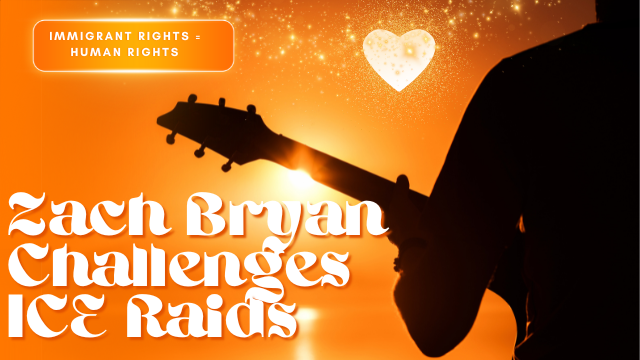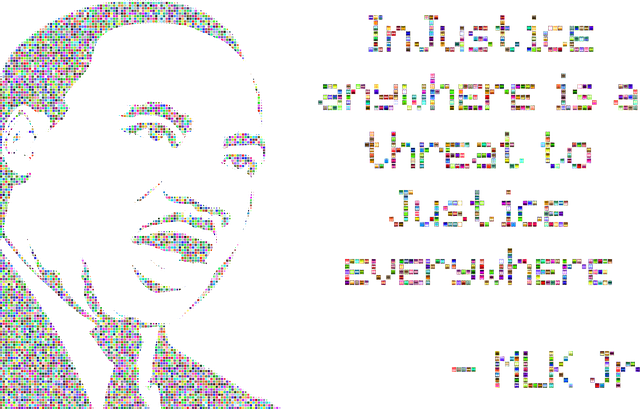Zach Bryan, a country star and prominent country music star, delivers a raw message about fear, family, and freedom in his song “Bad News” amid Trump’s latest immigration raids. As a singer who is proud to have served in the military, Bryan’s background and patriotism add depth to the national debate his song has ignited at the crossroads of music and politics.

What Is Zach Bryan’s “Bad News” About?
In October 2025, acclaimed country artist Zach Bryan released his haunting new track, “Bad News.” The song immediately stirred national attention — not only for its soul-stripped sound and lyrical grit but also for its unflinching criticism of Trump’s renewed immigration raids and the pain they inflict on working-class families across America.
Through its sparse guitar and trembling vocals, “Bad News” tells the story of a family living in constant fear of ICE raids — mothers afraid to drive to work, fathers vanishing in the middle of the night, children left behind to wonder why. Critics describe it as one of Bryan’s most powerful songs yet — a “country elegy for the undocumented.”
The song’s controversial ice lyrics paint a vivid picture of ICE agents ready to bust down your door, with lines like “ICE is gonna come,” “gonna come bust,” and “heard the cops came.” Bryan references how kids are all scared, scared and all alone, and got a telephone kids, highlighting the emotional toll on families. He contrasts the desire to build a house with the house no one builds, and the struggle to try to build amid fear. The lyrics evoke the fading of the red, white and blue, reflecting on American identity, generational story, and the hope that, despite division, we are still one bird. These themes have sparked debate about patriotism, national unity, and the impact of immigration enforcement.
Bryan doesn’t name Trump directly, but the references are unmistakable: “Sirens on the county road / blue lights under the cottonwood,” he sings. The lyrics mirror images emerging from real-world immigration raids that have dominated headlines throughout Trump’s second term.
Immigration Attorney Richard Herman*: “Bryan’s haunting verses narrate the perspective of families caught between loyalty and loss in the shadow of federal enforcement.”*

How Trump’s Immigration Raids Inspired the Song
To understand “Bad News,” it helps to see what inspired it. In 2025, the Trump administration intensified its nationwide worksite raids under Operation Safeguard — a sweeping initiative led by U.S. Immigration and Customs Enforcement (ICE). The operation targeted factories, warehouses, and food-processing plants, arresting thousands of undocumented workers and detaining many U.S. citizens in the chaos.
Human-rights advocates condemned these tactics as cruel and chaotic, while administration officials defended them as “necessary deterrence.” News outlets from Rolling Stone to Billboard covered the raids alongside Bryan’s song release, framing the track as an “unofficial anthem of resistance” against Trump’s immigration enforcement agenda. Homeland Security Secretary Kristi Noem called Bryan’s song ‘completely disrespectful’ to law enforcement and the country. Assistant Secretary Tricia McLaughlin issued an official statement claiming that Bryan had condemned heroic ICE officers in his lyrics, further fueling the debate over the portrayal of heroic ICE officers in the media.
In interviews, Bryan hinted that the song came from “seeing good people live in fear for doing honest work.” The juxtaposition of ordinary life and government intrusion forms the emotional backbone of “Bad News.” This controversy has proven how devastatingly divided the country is, with the song emerging in a divided space marked by intense political and social polarization.
Richard T. Herman, Esq.:“The song emerged amid expanded ICE operations targeting undocumented workers, sparking a nationwide dialogue about justice and humanity.”
Fan and Public Reactions to “Bad News”
Within hours of its release, “Bad News” exploded across streaming platforms. On Spotify, it debuted in the top 10 of the Americana charts; on YouTube Music, it racked up millions of views within a week.
A song snippet from the song Bryan posted on his Instagram story months ago began circulating, fueling the viral reaction and sparking heated debate. Over the last few months, Bryan shared his perspective in response to criticism, using Instagram stories to clarify his intentions and address the controversy. As the backlash intensified, Bryan was accosted on the internet, with some fans and critics threatening getting doxed or accosted, highlighting the dangers of throats through social media and the risks public figures face when discussing sensitive topics. Through it all, Bryan sings about these issues in his music, using his platform to express his views and connect with listeners.
Fans’ reactions were polarized.
- Supporters hailed Bryan’s courage, praising him for giving voice to communities often overlooked in country music.
- Critics — particularly Trump loyalists — accused him of “going woke” and “politicizing” his art. Some conservative fans accused Bryan of being anti-American and suggested that the backlash could end his career. White House spokeswoman Abigail Jackson criticized Bryan for allegedly wanting to ‘Open The Gates to criminal illegal aliens.’
- Immigrant-rights advocates flooded social media with clips of the song, calling it a “ballad for the brokenhearted.”
Americans disagree on the song’s message, and it hits on both sides of the political spectrum, resonating with people from both sides of the aisle. Bryan has made it clear he’s on neither of these radical sides, stating “clear I’m on neither” the left wing or right, and emphasizing unity beyond left wing and right wing divisions.
On TikTok, users paired snippets of the song with footage of ICE arrests and immigrant families reuniting at airports. On Reddit and X, threads debated whether Bryan’s stance would alienate his conservative fan base. The controversy surrounding “Bad News” reflects the polarized nature of public discourse around immigration issues.
Fans are divided — some praise Bryan for courage, others accuse him of politicizing music.
The Tradition of Protest in Country and Americana Music
Though country music is often associated with patriotism and conservative values, its roots also run deep in protest and populism. Artists like Johnny Cash, Willie Nelson, Steve Earle, and The Chicks have long used their platforms to challenge authority and speak for the working class.
As a country singer, Bryan values the ability to speak freely and converse amongst others, reflecting the genre’s tradition of open dialogue and protest. The freedom to speak freely and converse is central to country music’s history, allowing artists to address societal issues without fear of censorship.
Bryan’s “Bad News” fits neatly into that lineage — the modern heir to Cash’s “Man in Black” and Nelson’s “Living in the Promised Land.”
His approach echoes the Americana revival, where authenticity and empathy matter more than political party lines. Like Jason Isbell and Tyler Childers, Bryan’s songwriting centers on moral storytelling — a lens that naturally intersects with social justice themes.
As music historian Dana Gerber told Rolling Stone, “Country protest songs aren’t about left or right — they’re about right and wrong. Zach Bryan understands that lineage.”
Immigration Lawyer Richard Herman:“Bryan joins a long list of country artists who’ve used music to challenge power and defend compassion.”

Why “Bad News” Resonates With Immigrant Advocates
For immigrant-rights groups, “Bad News” arrived at a critical time. As Trump’s second-term immigration policies expanded detention quotas and workplace raids, songs like Bryan’s became emotional counterweights to fear and despair.
Organizations such as United We Dream, Faith in Action, and the ACLU Immigrants’ Rights Project praised the track’s empathy. Social media campaigns under hashtags like #BadNewsForHate and #ZachBryanForJustice helped propel the song into broader social movements.
In a statement, a coalition of immigrant families in Kansas wrote: “This song tells our story — not as statistics, but as people. When he sings, ‘I still pray for mercy even when I’m scared to kneel,’ it feels like he’s praying for us.” The song resonates with all those who have experienced fear and uncertainty due to immigration enforcement.
Musically, Bryan keeps the focus on narrative realism — subtle acoustic strumming, restrained percussion, and lyrics that ache with emotional honesty. The effect is haunting, reflective, and politically charged without slogans.
Immigrant-rights groups hail the song as a rare voice of empathy from mainstream country.
The Broader Meaning — Is Zach Bryan Becoming Political?
Zach Bryan’s career has largely avoided overt political statements. Known for hits like “Something in the Orange” and “Oklahoma Smokeshow,” he built his reputation on emotional authenticity rather than activism. Yet with “Bad News,” that seems to be changing. Bryan served in the U.S. Navy and has touched on political issues in his music before.
The song marks a turning point — not toward partisanship, but toward moral commentary. Bryan doesn’t preach policy; he tells stories that reveal pain, dignity, and the contradictions of American life. Bryan expressed concern about the divisive response to his song and said it shows how divided the U.S. is.
To understand the full context and get the full context that hits, listeners need to hear the rest or the rest of the song. Only when you hear the rest will the song you will understand Bryan’s true message about unity and love for the country. Bryan has said he is as confused as everyone else about how much s the controversy has caused, emphasizing the importance of understanding the full context before making judgments.
Critics from Billboard and NPR note that Bryan’s growing influence gives his words cultural weight far beyond the music charts. “He’s not a protest singer in the traditional sense,” one reviewer wrote, “but his humanity is protest enough.”
Compared to his earlier work, “Bad News” introduces a sharper social awareness — one that mirrors the rising tension between patriotism and protest in America’s cultural landscape.
While never overtly partisan, Bryan’s lyrics increasingly reflect the pain of ordinary Americans.
What “Bad News” Says About America in 2025
“Bad News” does more than criticize raids — it captures the emotional geography of fear that defines life under heightened enforcement.
In Trump’s 2025 America, immigration has once again become a political flashpoint. The administration’s renewed focus on workplace raids and border detentions has triggered public anxiety and community unrest. Families across the Midwest and South — many of them mixed-status households — find themselves living in constant uncertainty.
Bryan’s song channels this tension through its refrain, “Ain’t it hard to be proud when the good die quiet?” That line alone has become a viral quote across fan accounts, resonating with listeners from all walks of life.
Culturally, the song serves as a mirror — reflecting a divided nation where compassion and enforcement collide daily. Politically, it underscores how deeply immigration touches the heart of the American story. Ultimately, the song calls for national unity, emphasizing that all Americans are “one bird and American,” and Bryan’s lyrics express his deep love for this country.
“Bad News” captures the tension between patriotism and empathy in today’s America.
Where to Listen to “Bad News”
Fans can stream “Bad News” on Spotify, Apple Music, and YouTube Music. The official lyric video on Bryan’s YouTube channel includes haunting imagery — fields, flashing lights, and the outline of a lone figure walking into dawn.
Tip: For deeper context, listeners can explore Zach Bryan’s official site for tour dates and upcoming interviews discussing the song’s meaning and inspiration.
The Cultural Impact of “Bad News”
Beyond streaming numbers, “Bad News” has sparked discussion about the role of musicians in moral commentary. Country radio hosts debated whether politics belong in music, while podcasters drew parallels between Bryan and Bob Dylan’s folk-era activism. Progressives praised Bryan for addressing politically charged topics, considering it a bold move for a mainstream country artist.
This reaction underscores a broader cultural shift: artists once hesitant to touch politics now recognize their influence in shaping public empathy. As Bryan told Billboard, “I just write what I see. And what I see right now hurts.” Bryan identifies as a “total libertarian” and refrains from taking sides in political battles, expressing concern over national division.
When zach bryan performs both “Bad News” and earlier hits like “Pink Skies,” some critics respond by telling him to “stick to Pink Skies” or referencing “Pink Skies, dude,” highlighting the contrast between his nostalgic, patriotic themes and his new, more controversial political direction.
Scholars of popular culture note that “Bad News” bridges the rural-urban divide, translating political pain into human emotion. It’s not a campaign slogan — it’s a lamentation of conscience.
Final Takeaway
Zach Bryan’s “Bad News” is more than a song — it’s a moral statement wrapped in melody. It forces America to look inward at the human cost of enforcement and the enduring power of empathy.
As immigration enforcement data show an ongoing rise in workplace raids and detentions, “Bad News” stands as an anthem of compassion — one that challenges silence and complacency.
In an era when political divides threaten the fabric of the nation, Bryan’s song reminds us of the humanity that connects us all.
As immigration enforcement intensifies, songs like “Bad News” remind us that music still tells the nation’s conscience what it needs to hear.




